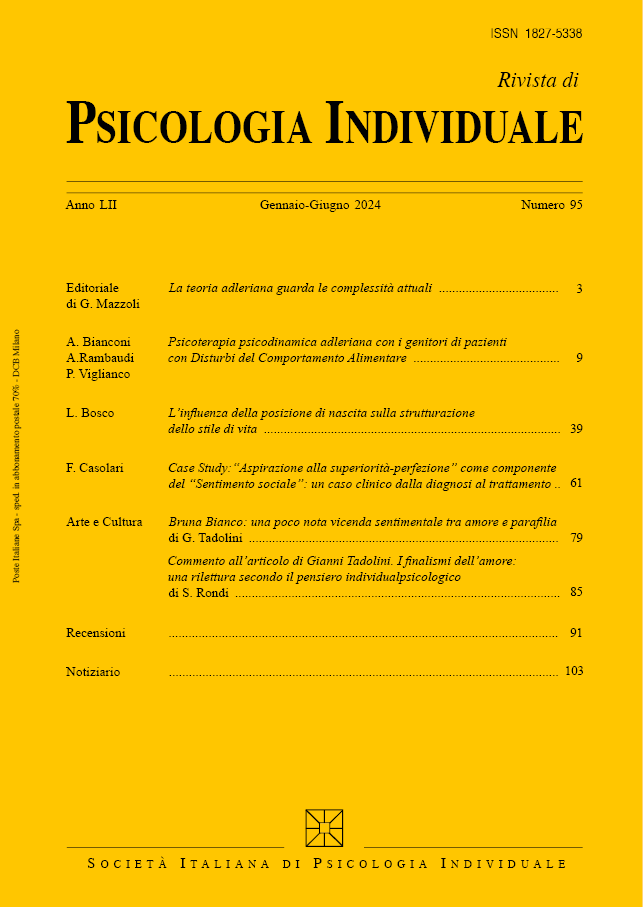The individual psychology of A. Adler and the problem of its epistemological foundation
Keywords:
epistemology, functionalism, freudian model, individual psychology, analytical psychotherapy, ego, personality, intentionality, feelings of inferiority, will to power, lifesyle, goal, fiction, unconscious, relationship, consciousnessAbstract
Compared to the Freudian model, with which various comparisons are made, from an epistemological point of view, the functionalist and subjectivist nature of Adlerian psychology is emphasized, based on the assumption that psychic life, founded on the principle of personality and its contradictions, is governed by goals created by the personality itself. In this psychology of personal meanings, the ego is conceived as the interpretative filter of the entire dialectic underlying every psychic experience. Compared to the naturalistic, drive-centered Freudian model, in the Adlerian view, the ego is not merely a theoretical superstructure, but the center of psychotherapeutic investigation. The principle of intentionality is therefore highlighted as the basis for the construction of personality, which, in order to assert itself, aspires to overcome feelings of inferiority and achieve a state of power, a fictitious ideal. The role of fictions, unconscious dogmas that must be brought to consciousness and integrated, and of fictitious counter-fictions, aimed at offering a socially acceptable image of one's own choices, creatively and autonomously determined, is clarified






